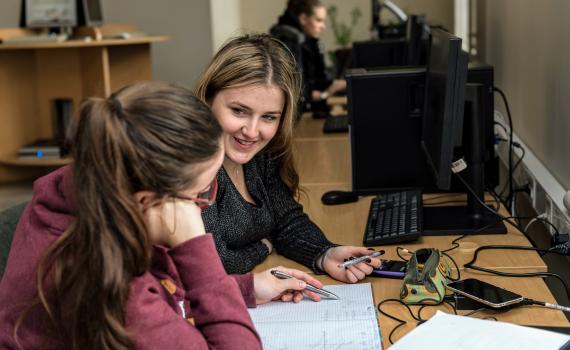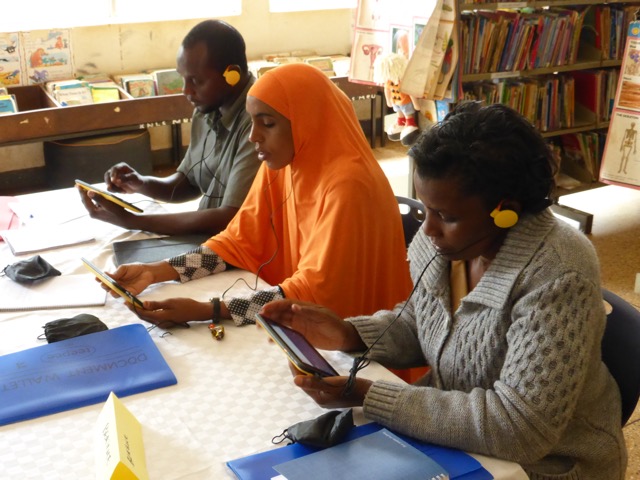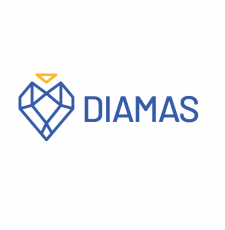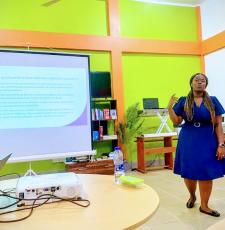
“In an unprecedented initiative called ‘Electronic Information for Libraries’ (EIFL Direct), libraries in 39 countries will have access to a wealth of electronic full-text scholarly journals.” This announcement, by press release, marked the birth of EIFL 20 years ago, on 5 October 1999.
At that time I was working at the Open Society Institute, part of the Soros foundations network. We were receiving applications from ex-Soviet Union university libraries requesting grants to subscribe to print journals. There was a dilemma: the subscriptions were not cheap, and they only lasted for one year. So these grants were not sustainable in the long term, and we knew that there were thousands of libraries in other developing countries that also needed, and wanted, to have access to the latest scholarly information. A few years later, the shift from print to digital in the publishing industry began and we saw an opportunity to solve the problem. The Open Society Institute negotiated with EBSCO, a large content aggregator, for a 99% discount to online journals for all libraries in countries where Soros foundations existed, as well as free delivery of the content on DVD-ROM to those libraries with poor internet connectivity. At last we were able to provide access to more than 3,500 full-text journals.
The next challenge was to ensure that librarians and scholars knew about the deal and were able to make the best use of the new electronic resources in their libraries and institutions. We hired Monika Elbert, an international expert on libraries, to travel to countries, meet with stakeholders and mobilize libraries to form consortia in which librarians could learn and share knowledge and subscription costs. In just three years we were able to form library consortia in more than 30 developing and transition economy countries, and to establish a not-for-profit organization EIFL (Electronic Information for Libraries).
In 2003, with start-up funding from the Open Society Institute, EIFL became an independent organization with a mission to provide access to knowledge, and a vision of a world in which people have the knowledge they need to fulfill their potential. EIFL negotiated with more publishers for affordable access to e-resources, including journals, e-books and databases. However, we were not able to convince some of the most expensive content providers such as Elsevier, Springer Nature, IEEE and ACS to engage with us to negotiate affordable access to all of their content.
Since 1999, 58 million full text articles and book chapters have been downloaded from e-resources negotiated through EIFL.
 Now, 20 years on, the publishing world is transitioning again, this time moving from a subscription-based business model to an open access publishing model, where open access becomes the default and research articles are openly available for everyone to read and build upon.
Now, 20 years on, the publishing world is transitioning again, this time moving from a subscription-based business model to an open access publishing model, where open access becomes the default and research articles are openly available for everyone to read and build upon.
We have been advocating for open access to publications, raising awareness and providing training in open access since 2004. A quarter of a million librarians, researchers, research administrators, government officials and research funders in almost 70 countries in Africa, Asia and Europe have received open access training through EIFL. We were one of the original signatories to the Budapest Open Access Initiative declaration, which coined the term open access.
EIFL has helped to set up infrastructure for open access content by supporting the establishment of open access institutional repositories and journals in partner countries. The first institutional repository in our network was established by the University of Zimbabwe in 2005, and today there are over 1,100. Through a European Union-funded project, OpenAIRE, we also contributed to the development of a European infrastructure for open science, which harvests open access repositories and journals from all around the world. Over 32 million publications, two million research data and three million other research products are available in open access through the OpenAIRE portal. As a result, people everywhere can freely read the published articles, and they can also see the research methods and the underlying data on which the conclusions are based.
In addition, we are a co-founder of COAR (Coalition of Open Access Repositories), an international association that brings together the repository community and major repository networks.
To increase content available in open access, another facet of our work is to advocate for, and support the drafting of, institutional and national open access policies that mandate open access to research outputs. With our support, seven national and 158 institutional open access policies have been adopted in EIFL partner countries.
While solving access issues, we have to make sure that publishing in open access does not become a barrier for researchers in developing countries. Although many open access journals do not charge fees for publishing an article, some do require an Article Processing Charge (APC). A couple of years ago, we started negotiating with publishers for discounted or waived APCs to make it affordable for authors in partner countries to publish their articles in open access.
Our work in maximizing access to knowledge led us naturally into the area of copyright. Digital content has transformed library services and how information is discovered and delivered, but most national copyright laws, that regulate how information is accessed and used, are seriously out-of-date because they have not kept pace with technological developments. For example, in many developing countries, libraries are not permitted to do basic things, such as copying part of a work for research or study purposes, or they are not allowed to make a digital copy. Without modern exceptions and limitations for libraries in copyright laws, libraries cannot provide proper access to information or meet the needs and expectations of library users in the digital environment. This is why we advocate for copyright laws that enable libraries to deliver services expected in the 21st century. Through our work, we have helped to shape copyright laws, or draft laws, in 14 partner countries. To ensure sustainability and long lasting impact, we have created a network of expert copyright librarians who are knowledgeable about copyright issues, and can advocate with their governments for change into the future.
We obtained observer status at the World Intellectual Property Organization (WIPO) where we advocate for a global solution, an international treaty on copyright limitations and exceptions for libraries to ensure equality of access to information through libraries everywhere. During this time, one important access issue was successfully addressed, that is, the right to read for people who are blind and visually impaired.
We supported the World Blind Union in their advocacy at WIPO for the adoption of the Marrakesh Treaty for persons with print disabilities. This landmark Treaty makes it possible for libraries, and other entities, to convert printed works into accessible formats such as braille, audio, large print and digital formats, and to exchange these works across national borders. As a result of our advocacy with national governments, by 1 October 2019, 17 EIFL partner countries had ratified the Marrakesh Treaty, that is 20% of all WIPO member states that have joined the Treaty. We are also working with governments to implement the Treaty into national law, and with libraries so that they can take full advantage of their new rights under the Treaty, and increase accessible format works available to their users.
 While we were gaining ground in increasing and improving access to knowledge for students, researchers and academics through universities and research institutions in our partner countries, we realized that public libraries were lagging behind. They were underfunded, books were scarce and out-of-date, and most did not have computers or access to the internet.
While we were gaining ground in increasing and improving access to knowledge for students, researchers and academics through universities and research institutions in our partner countries, we realized that public libraries were lagging behind. They were underfunded, books were scarce and out-of-date, and most did not have computers or access to the internet.
We applied to the Bill and Melinda Gates Foundation for funding, and we were awarded a grant to spark innovation in public libraries.
Exactly 10 years ago we launched the EIFL Public Library Innovation Programme (EIFL-PLIP) which provided public libraries with financial support to pilot innovative services that use digital technology, and trained public librarians to assess community information needs and build partnerships. We ensured that library staff were skilled to assist members of their communities to discover the internet and the opportunities it offers.
The new services launched through EIFL-PLIP support were inspiring. Their community impact was extensive - they improved people’s health; trained people to use computers and the internet; connected farmers to sources of information and support; helped unemployed and vulnerable people to get jobs; helped children improve their marks at school, and more. The services demonstrated to governments how properly equipped and resourced public libraries can benefit communities and contribute to economic and social development goals. For example, our work with the Kenya National Library Service led the Kenyan government to equip all public libraries with computers and the internet. Now public libraries across Kenya are training members of their communities to use ICT and mobile phones. They are using Kindles and tablets for reading and educational games, and are also delivering connectivity to poorly-resourced schools and remote locations. As a result of our work, similar transformations are taking place in Ghana and Uganda.
EIFL’s 20th anniversary coincides with the centenary of the death of Andrew Carnegie, the great philanthropist, whose legacy included the establishment of over 2,500 public libraries around the world. I recently listened to a BBC podcast about Carnegie’s philanthropy. Carnegie recognized that it did not cost much to invest in libraries, education and knowledge, but that people would benefit from generation to generation.
EIFL also chose to work with libraries to address the issue of access to knowledge. Libraries exist in every country, and through libraries we are making a lasting impact in people’s lives. Thank you to all our partners, the many individuals, donor organizations and others who believe in us.
SHARE / PRINT








